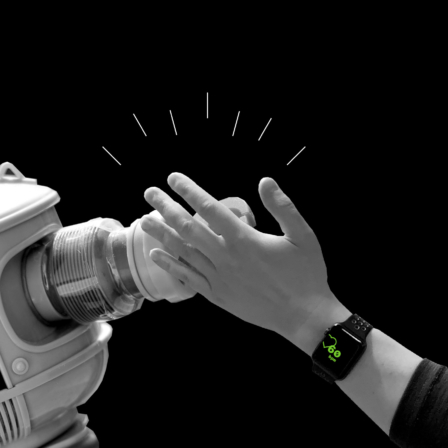According to British estimates, there were some 366,000 health apps on the market at the end of 2019, and today their number has increased to 400,000. The same studies reveal that health and well-being apps are downloaded more than five million times per day. This indicates there is enormous consumer potential and business opportunity.
Several European countries have launched a number of projects with the aim of encouraging users or patients to utilise the data they themselves measure to prevent and treat illnesses. However, there are many things that are still lacking:
- confidence among both consumers and healthcare professionals in the data generated by smart devices and health apps;
- a marketplace for reliable and clinically validated applications;
- feasible business models to boost growth.
Europe promotes the use of health app data in many ways
Active measures are being taken to remove these obstacles and we are beginning to see solutions entering the market. For example, in the UK, the NHS has adopted a set of criteria for health app assessment and Germany has adopted legislation that allows the health insurance system to reimburse patients for the use of health apps. Similar schemes are underway in the Netherlands and Austria.
In Finland, the Social Insurance Institution Kela has carried out pioneering work through its Kanta service by launching the Personal Health Record service as part of My Kanta. My Kanta is a national portal where customers can view their medical records and information about their prescription medicines. The Personal Health Record (Omatietovaranto in Finnish) is an open data repository where users may record information about their health for further use with an application that meets the set criteria and technical specifications. At the moment, the number of applications providing data into this repository and also using this data is still low, as the real benefits will only be fully realised once the new client data legislation, currently under preparation, enters into force.
The criteria developed in the UK help official bodies evaluate the efficacy and risks of health apps.
In the UK, Orcha, the private evaluation and advisory organisation supporting NHS Digital, has created a comprehensive set of 350 criteria for assessing the features and the quality of health apps. The evaluation model serves as a decision-making tool that gives healthcare professionals and the authorities recommendations based on the efficacy, risks and usability.
Germany, which has traditionally taken a conservative view of digitisation in healthcare, enacted a new Digital Healthcare Act (“Digitale-Versorgung-Gesetz” – DVG) as the first country in the world to establish a reimbursement procedure for doctor-prescribed apps.
Patients in Germany may now receive reimbursement for the cost of digital apps prescribed by their doctor.
The German regulatory authority (BfArM, Bundesinstitut für Arzneimittel und Medizinprodukte, similar to the FDA in the US) evaluates the features of health apps and approves those that are suitable for the national health insurance scheme. Application developers have one year to provide evidence of the clinical benefits of their apps for inclusion in the register of approved applications. This allows doctors to prescribe a digital app alongside – or instead of – drug therapies, for which the patient may then seek reimbursement through the health insurance system.
So far, the register for approved apps has only a few options available, as the approval process is slow and demanding. The first approved applications include solutions for the treatment of MS, tinnitus, anxiety and panic disorder, depression, insomnia and obesity.
It is no coincidence that the selection has focused on mood-monitoring applications. According to the British estimate, nearly 30 per cent of all digital solutions are designed for the management of brain-related conditions, such as dementia, depression and anxiety disorders. Around 10 per cent of all mobile health apps are designed for diabetes management, while only 5 per cent are aimed at cancer treatment and rehabilitation.
According to the model in Germany, the patient may be eligible for full reimbursement for an app, the cost of which may be, for example, 430 euros. Without the compensation paid from the national health insurance, few would be prepared to pay hundreds of euros for an app when typical consumer apps can be downloaded for free or for a few euros at most.
Innovation businesses targeting rapid international growth are usually forced to invest heavily in marketing to acquire users. With the new models introduced by governments, companies at a critical stage of their growth have a much better chance of building a business model where the resources can be spent on testing clinical efficacy, user experience and reliable sharing of data instead of expensive marketing. This would create an incentive for investors to invest in high-quality solutions that genuinely benefit all parties – consumers, investors, businesses and healthcare providers.
“Digital medicines” as a more widespread remedy require strong confidence from the user community.
It remains to be seen at what pace governments outside Europe are able to amend their health insurance systems to cover digital health apps. In addition to national measures, work is also underway to develop pan-Nordic models for the new classification and distribution of digital apps.
Finland’s national daily newspaper Helsingin Sanomat reported on 18 January 2021 that “doctors can soon give patients suffering from depression a prescription to play games”, which suggests that digital therapies are gaining a foothold in Finland.
The weakest link in the chain of confidence building is people themselves. Patients as well as doctors need a great deal more persuasion before they fully trust “digital medicines”. However, development is inevitably moving in a direction where the holistic approach to healthcare will involve services based on data and analytics to complement traditional pharmaceutical interventions.



















The Fair Health Data Callenge
Rise to the challenge.